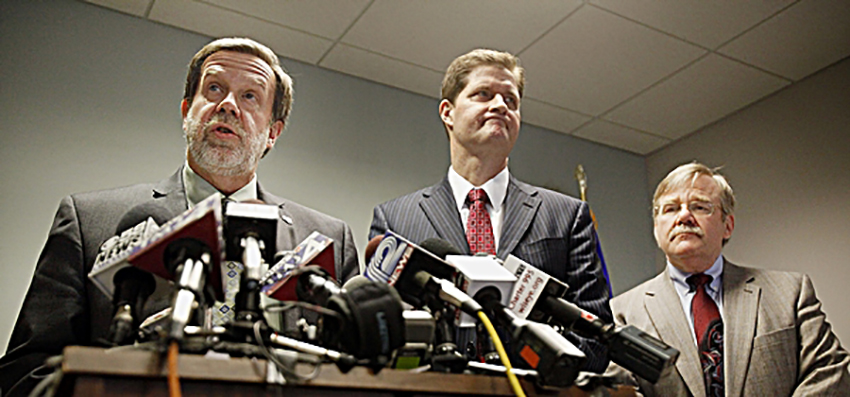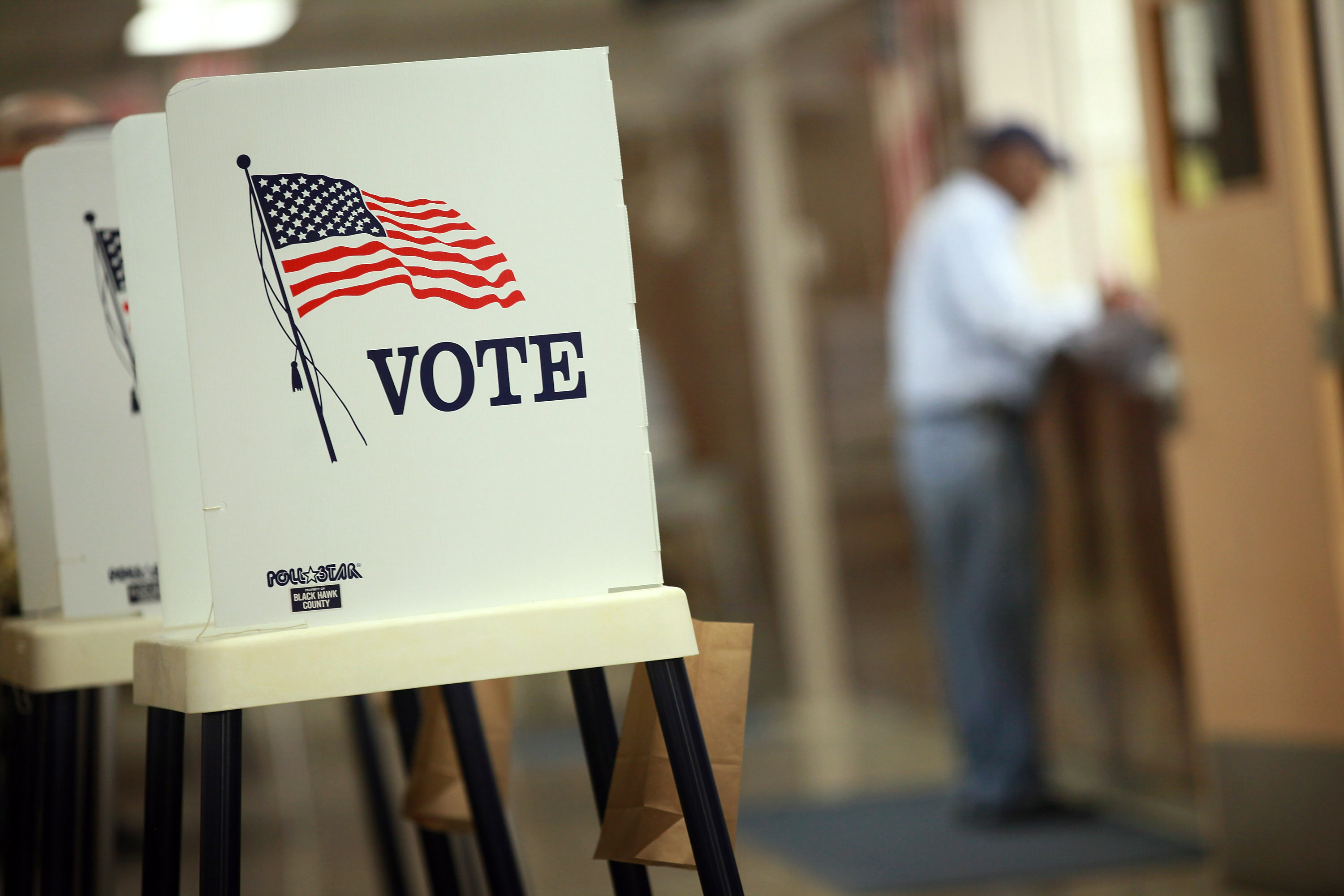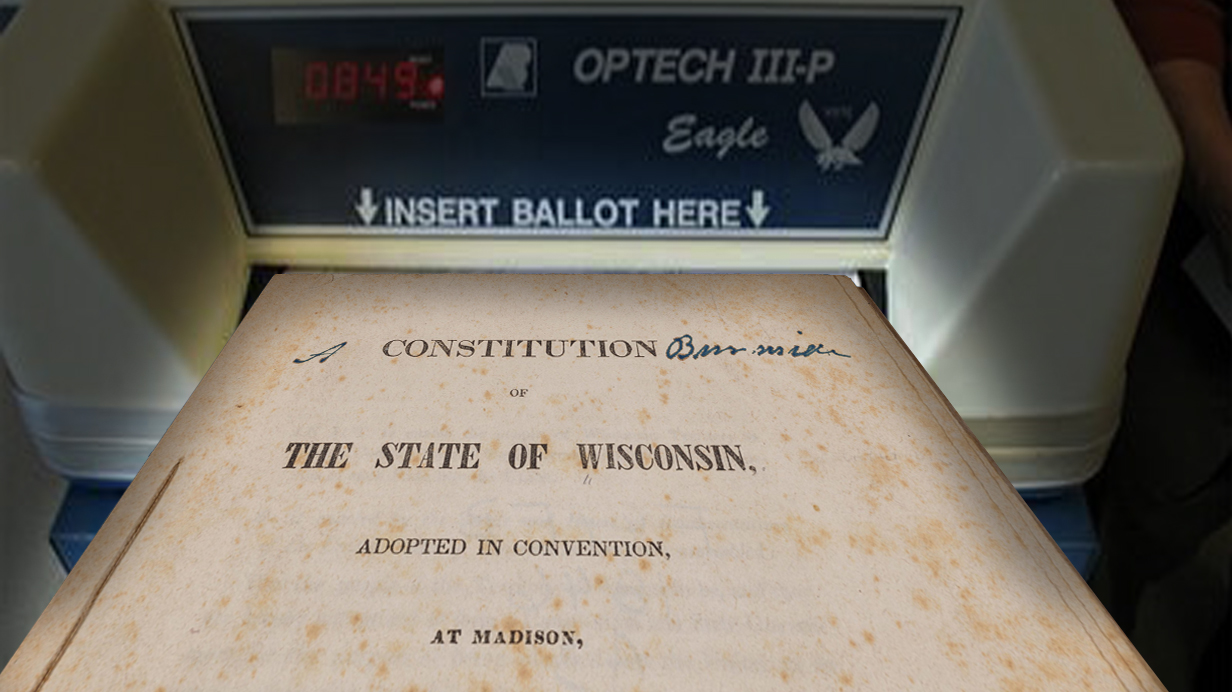 [bctt tweet=”GAB held onto thousands of private emails from Wisconsin conservatives in several folders on their servers marked “Opposition Research.” #wiright #wipolitics” username=”MacIverWisc”]
[bctt tweet=”GAB held onto thousands of private emails from Wisconsin conservatives in several folders on their servers marked “Opposition Research.” #wiright #wipolitics” username=”MacIverWisc”]
MacIver News Service | December 6, 2017
By M.D. Kittle
MADISON, Wis. – Wisconsin’s infamous John Doe investigation was more sinister and politically driven than originally reported.
A Wisconsin Attorney General report on the year-long investigation into leaks of sealed John Doe court documents to a liberal British publication in September 2016 finds a rogue agency of partisan bureaucrats bent on a mission “to bring down the (Gov. Scott) Walker campaign and the Governor himself.”
The AG report, released Wednesday, details an expanded John Doe probe into a “broad range of Wisconsin Republicans,” a “John Doe III,” according to Attorney General Brad Schimel, that widened the scope of the so-called John Doe II investigation into dozens of right-of-center groups and scores of conservatives. Republican lawmakers, conservative talk show hosts, a former employee from the MacIver Institute, average citizens, even churches, were secretly monitored by the dark John Doe.
Department of Justice investigators found hundreds of thousands of John Doe documents in the possession of the GAB long after they were ordered to be turned over to the Wisconsin Supreme Court.
State Department of Justice investigators found hundreds of thousands of John Doe documents in the possession of the GAB long after they were ordered to be turned over to the Wisconsin Supreme Court.
The Government Accountability Board, the state’s former “nonpartisan” speech cop, proved to be more partisan than originally suspected, the state Department of Justice report found. For reasons that “perhaps may never be fully explained,” GAB held onto thousands of private emails from Wisconsin conservatives in several folders on their servers marked “Opposition Research.” The report’s findings validate what conservatives have long contended was nothing more than a witch-hunt into limited government groups and the governor who was turning conservative ideas into public policy.
“Moreover, DOJ is deeply concerned by what appears to have been the weaponization of GAB by partisans in furtherance of political goals, which permitted the vast collection of highly personal information from dozens of Wisconsin Republicans without even taking modest steps to secure this information,” the report states.
And in an all-too familiar occurrence involving allegations of government abuse, a key hard drive believed to contain the court-sealed John Doe documents leaked to The Guardian in October 2016 has suspiciously disappeared – GAB officials with knowledge of the hard drive can’t seem to explain what happened to it.
[bctt tweet=”The DOJ recommends the John Doe judge initiate contempt proceedings against former GAB officials and the John Doe probe’s special prosecutor for “grossly” mishandling secret evidence. #wiright #wipolitics” username=”MacIverWisc”]Still, despite a damning report laying out myriad examples of criminal misconduct by government bureaucrats, Schimel, a Republican, says his Department of Justice cannot file criminal charges – chiefly because of disappearing evidence, less-than-cooperative John Doe agents and the “systemic and pervasive mishandling of John Doe evidence (that) likely resulted in circumstances allowing the Guardian leak in the first place.”
Such failures prevent prosecutors from proving criminal liability beyond a reasonable doubt, the attorney general wrote, although the report points to a small universe of GAB employees that had access to the leaked documents.
They also seemed to have a political ax to grind.
The Department of Justice, however, recommends the John Doe judge initiate contempt proceedings against former GAB officials and the John Doe probe’s special prosecutor for “grossly” mishandling secret evidence. Schimel also recommends that Shane Falk, who served as lead staff attorney in the John Doe probes, be referred for discipline to the Wisconsin Court System’s Office of Lawyer Regulation. Falk took a job with a private law firm in August 2014, just as allegations of investigative abuse began to surround the political investigation.
Back Doe
The John Doe has a long and winding history. It all began in 2010, when the Milwaukee County District Attorney’s office, led by Democrat John Chisholm, signed off on a secret investigation into the Milwaukee County Executive’s office, at the time directed by then-Republican candidate for governor, Scott Walker.
It was Walker who, the year before, brought questions about a discrepancy in a county veterans fund to the DA’s attention. His chief of staff at the time asked the agency to investigate. Eventually, the district attorney’s office opened a John Doe, as Walker, a fiscal conservative in a liberal county, was rolling into his run for governor.
That investigation brought six convictions, only two of which were related to the original scope of the veterans fund investigation. Prosecutors, with the help of a very accommodating John Doe judge, went after Walker’s staff and conservative allies in what was commonly known in the DA’s office as the “Walker Doe,” according to an inside source. They threatened two County Executive staffers with lengthy prison sentences if they didn’t talk, if they didn’t turn on their boss. They didn’t because they couldn’t. There was nothing to tell, according to the targeted staffers.
Chisholm used the hundreds of thousands of electronic communications – including reams of private email – to seek a second John Doe. This time, the district attorney, with the help of the very willing Government Accountability Board, set their sights on just about every right-of-center group in Wisconsin. The probe investigated the prosecutors’ theory that conservative organizations illegally coordinated with Walker’s campaign during the bitterly partisan recall elections of 2011 and 2012.
John Doe agents effectively conducted a spy operation, secretly grabbing up millions of digital records from Republicans who had no idea they were being targeted in the Democrat-led dragnet. The agents capped it off in October 2013 with coordinated, predawn, armed raids on the homes of several conservative Wisconsinites. Many were forced to sit by while law enforcement officials rooted through their possessions in the name of a campaign finance paper investigation.
Only one problem: There was no illegal coordination, no campaign finance wrongdoing, no collusion. Sound familiar? (See Special Prosecutor Robert Mueller’s investigation into the Trump campaign). The John Doe judge at the time in early 2014 quashed the subpoenas used in the investigation. He found that the prosecutors lacked probable cause that crimes alleged had been committed.
The ruling followed a string of court decisions that not only raised questions about the prosecutors’ theory, but the tactics involved in the political probe.
In July 2016, the Wisconsin Supreme Court declared the John Doe investigation unconstitutional and ordered it shut down. The majority opinion concluded that Special Prosecutor Francis Schmitz was “the instigator of a ‘perfect storm’ of wrongs” perpetrated against citizens who were legally exercising their First Amendment rights. At least they were until the John Doe investigators silenced them.
Wisconsin’s John Doe law is similar to a grand jury investigation, without the benefit of a jury of peers. The procedures are overseen by a single judge with extraordinary power to compel witnesses to testify – all in the pursuit of determining whether a crime has been committed. Unlike a grand jury investigation where the accused can publicly defend themselves, John Doe targets and witnesses must remain silent. Failing to do so could land them in jail or subject them to steep fines.
After the Supreme Court decision, the Republican-led Legislature reformed the John Doe law and its secrecy order that one federal appeals court judge described as “screamingly unconstitutional.” It also jettisoned the “nonpartisan” Government Accountability Board following growing evidence of investigative abuses.
‘Pretty Please’
Despite court orders in January 2014 barring the John Doe prosecutors and their bureaucratic pals from further reviewing any of the “evidence” they had illegally obtained, GAB staff pushed on.
Days after the court order, Shane Falk, GAB’s lead attorney on the John Doe, directed staffer Molly Naggappala to log into the investigation’s account with an offsite data storage site where the millions of documents were stored (at taxpayer expense). He told Naggappala to print off emails seized from search warrants.
“Can you print out everything that you pulled out of Relativity (the data storage operator) and previously sent us? Then give a copy to Nate (Judnic) and one to me. Pretty please?” Naggappala complied, according to the Attorney General’s investigative report. It was a “direct violation” of the judge’s cease and desist order.
[bctt tweet=”Naggappala complied, according to the Attorney General’s investigative report. It was a “direct violation” of the judge’s cease and desist order.” username=”MacIverWisc”]Schmitz, the special prosecutor, didn’t order Falk to “stand down,” and Falk and other GAB staff continued to access the documents in defiance of the court order.
The documents Falk sought were the “very emails … that were leaked to the Guardian newspaper,” the DOJ report states.
It was previously reported that John Doe investigators used Gmail accounts disconnected from the state electronic communications system when sharing investigation information and ideas. The Department of Justice probe into the leaks found Falk used an external hard drive for the storage of separate John Doe files. Falk told DOJ investigators that he turned the hard drive over to colleague Nathan Judnic when he left the GAB.
Falk and former GAB staff and current administrators at the GAB’s successor, the state Ethics Commission, could not provide the hard drive to investigators. After some conflicting answers, none of the attorneys and bureaucrats could offer an explanation for what happened to it.
Falk came to the GAB with a left-leaning pedigree. He previously had served as a Democrat appointee on a state campaign ethics board, the predecessor to the GAB. In 2008, he testified before the relatively new GAB, urging the agency to find ways of “getting around the constitution” to go after issue ads from organizations such as Wisconsin Manufacturers & Commerce.
“When it comes to the point of it affecting an election, the compelling interest rises to the level where the state can get around the constitutional right to free speech,” he testified.
During the John Doe probe, Falk encouraged Schmitz, the special prosecutor, to stay strong in their pursuit of Walker and his conservative allies.
“Remember, in brief, this was a bastardization of politics and our state is being run by corporations and billionaires,” Falk wrote in an email on conservative issue advocacy. “That isn’t democracy to say the least, but due to how they do this dark money, the populace never knows.”
The populace also didn’t know just how political the John Doe probe had gotten.
‘Falk Boxes’
The Department of Justice report refers to “Falk boxes,” in which three hard drives in particular contained nearly 500,000 unique emails from Yahoo and Gmail accounts, totaling millions of pages.
“The hard drives included transcripts of Google Chat logs between several individuals, most of which were purely personal (and sometimes very private) conversations,” the report states.
GAB placed a “large portion” of the emails into several folders titled, “Opposition Research” or “Senate Opposition Research.”
[bctt tweet=”GAB placed a “large portion” of the emails into several folders titled, “Opposition Research” or “Senate Opposition Research.”” username=”MacIverWisc”]John Doe investigators dug deep in their expansive “John Doe III” probe, obtaining through warrants electronic communications of the governor, Assembly Speaker Robin Vos (R-Rochester) U.S. Sen. Ron Johnson (R-Oshkosh), former RNC chair Reince Priebus, U.S. Rep. Sean Duffy, and state Sens. Van Wanggard and Howard Marklein. They also monitored the emails of conservative talk show hosts Vicki McKenna, Mark Belling, and Charlie Sykes, as well as former MacIver Institute employee Brian Fraley.
“The breadth of information and communications contained in the ‘Falk boxes,’ apparently as the result of the John Doe III investigation into Wisconsin Republicans, was breathtaking,” the attorney general’s report asserts. “Just to illustrate this point, the investigators obtained, categorized, and maintained over 150 personal emails between Senator Leah Vukmir and her daughter, including emails containing private medical information and other highly personal information.”
Why?
“DOJ was unable to determine why investigators ever obtained, let alone saved and labeled, over 150 very private and very personal emails between a Senator and her child, or why investigators placed those emails in a folder named ‘Opposition Research,’” the report states.
Vukmir, a Republican candidate for U.S. Senate, was astounded in learning that she was spied on, but she vowed to fight against such “intrusive behavior.”
“Attempting to bully her into silence will not work,” said Vukmir campaign spokeswoman Jessica Ward. “Sen. Vukmir intends on exploring additional legislative or legal options to ensure this never occurs again, and that any individuals involved are held fully accountable.”
But the Vukmir emails were just the tip of the iceberg. The Department of Justice investigation found the John Doe probe swept up all kinds of private emails, including:
- Over 1,000 emails between a private bible study group called a “Life Group” at Blackhawk Church in Middleton, Wisconsin. The emails covered such subjects as “LG- He is risen,” “LG- helping out Mom,” “LG- Game Night,” “LG- Spiritual Formation,” “LG-The Spirit and Scripture,” “LG-New Sermon Series=Rainbows and Sugarplums,” and “[Redacted] Requests Prayer.”
- Pictures of a woman who was purchasing a new dress, asking the email recipient how the dress looked on her.
- A string of 20 emails referencing a “Kenmore Mini Fridge” negotiation over Craigslist.
- An email thanking the recipient for advice concerning the purchase of a Benelli over/under shotgun at Dick’s.
- An email between parents discussing a daughter’s need for an OB-GYN.
- An email regarding prescription medications needed.
- A series of Google Chat logs between friends covering a variety of private topics, including whether the writer needs “to lose 20 lbs asap.”
- Several emails between family members circulating drafts and corrections to a Christmas letter.
The Department of Justice’s review of these emails did not find any unethical or illegal behavior by “any state official, employee, or other Wisconsin Republican apparently targeted in John Doe III.”
DOJ investigators believe the leak to the Guardian was calculated to attempt to influence a U.S. Supreme Court decision on whether to take up John Doe prosecutors request for review of the state court’s decision shutting down the investigation – and whether they could hold onto the possessions they illegally took. The Guardian hit piece, with hundreds of pages of cherry-picked court documents, was published just days before the court unanimously rejected the case.
Sloppy disregard for the security of the court-sealed John Doe documents – at the GAB and at the state Supreme Court office – left the DOJ unable to identify beyond a reasonable doubt who had access to the records, when the records where accessed or “who stole them,” according to the report.
Here’s the scary footnote to a frightening report on government abuse: The Department of Justice cannot assure any John Doe II or III target that information illegally seized from them “will not be published on the Internet or by The Guardian at some future date.”
“Nor can DOJ assure any person whose information was gathered that they will not suffer from identity theft or face other adverse consequences as a result of the irresponsible way that GAB handled personal information,” the report states.




